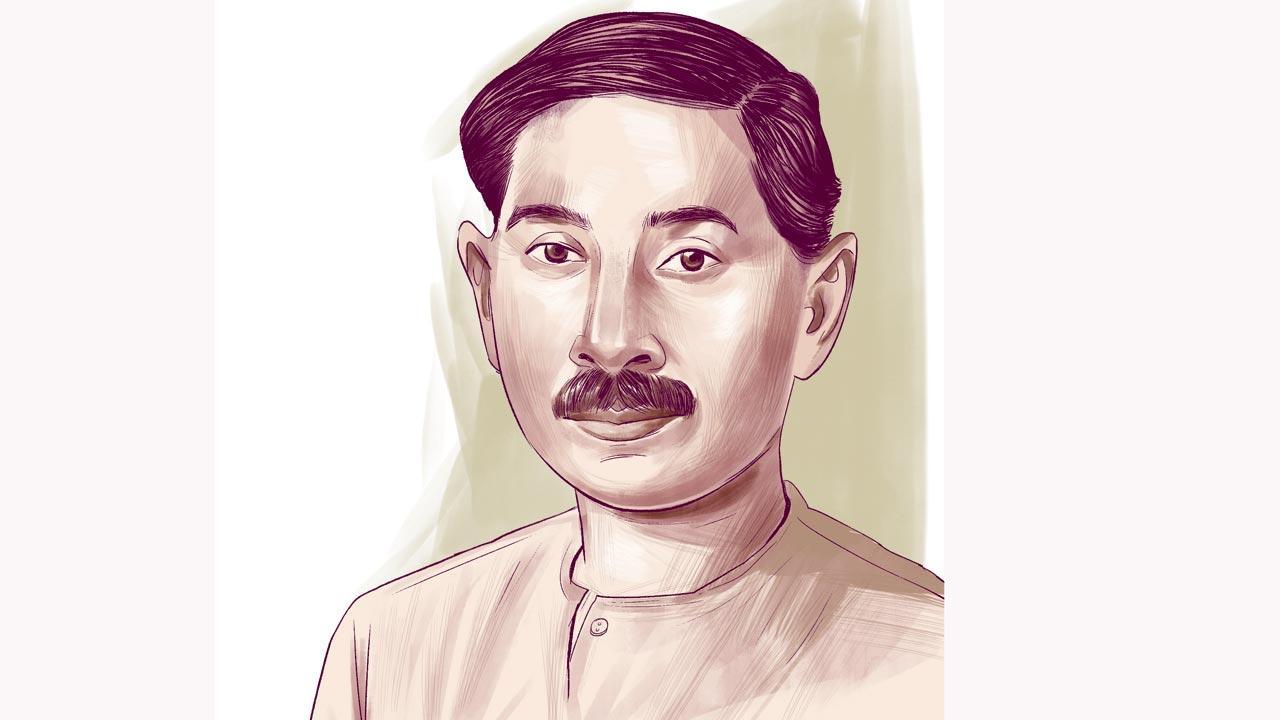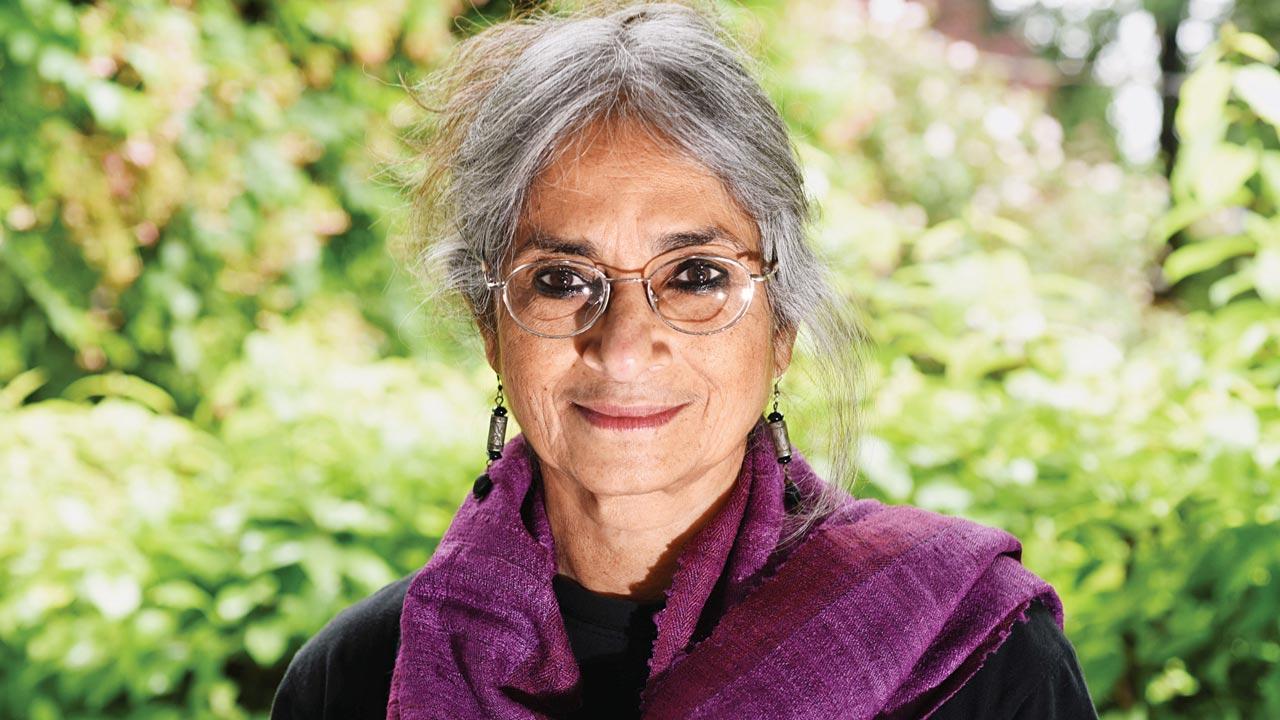Writer-editor Sara Rai talks Premchand and the shared love of a family for Hindustani, spartan living and telling stories of those on the margins

Illustration/Uday Mohite
In school, Hindustani-Urdu writer Munshi Premchand was a looming presence for this writer. His short stories were a compulsory inclusion in the Hindi textbooks, one each for every year. If you hadn’t read him, you probably weren’t reading Hindi. Writer-editor Sara Rai’s introduction to her late grandfather’s stories also happened inside the classroom. “He was the unbelievable figure in the family cupboard that no one had seen,” she writes in her memoir Raw Umber (Westland Books), a collection of essays about her family, which has been shortlisted for Tata Literature Live! Book of the Year in the non-fiction category. “He’d already been dead 12 years when my parents got married, so there was no question of my meeting him,” she shares in the book.
ADVERTISEMENT
Yet, she tells us, Premchand, the pseudonym used by Dhanpat Rai Srivastava, remained a large presence in their lives. Mostly, in the stories relayed by members of her family and his readers—“the clerk at the bank, the watchman who sat outside the gate of the school that my mother ran, the woman at the stationery shop, or the man sitting across from you in the train”—some of whom would rattle off passages from his stories by rote. “People had memorised him. He was on the streets, he was everywhere… he was so ubiquitous, it was overwhelming,” recalls Rai in a video call interview from Ranikhet, Uttarakhand.
 Sara Rai
Sara Rai
His writings though, eluded Rai for long. “He was in the school textbooks of course… right from Class V, I think. Everyone at my school [in Allahabad] knew I was Premchand’s granddaughter. So, when we’d have these readings in class and open to his chapter, my classmates would turn around to look at me,” she says, and remembers feeling embarrassed. Studying in a convent meant that speaking in any language, except English, was discouraged for most part. It’s one of the reasons why Rai caught on to Hindi literature in her 20s. “I started reading Premchand only after. I can’t claim to have read all of him even now.”
With four classics of the late legendary writer—the novels Gaban and Godaan and two collections of his short stories, Poos Ki Raat Aur Anya Kahaniyaan and Idgaah Aur Anya Kahaniyaan—being re-published by the imprint Eka, the renewed interest in Premchand’s writings are not lost on her.
His enduring appeal, she feels, is because he had a finger on the pulse of the common people. “And he brought them on the literary stage.” In his world, as she shares, in the book, “men and women live out their lives in poverty, in a system that spares no one. Women have a crucial role in his fiction; they are credible and strong characters, quite often decision makers who influence the resolution of the story. Dalit, tribal and upper caste, Muslim and Christian live and breathe as themselves, without coming across as mouthpieces of particular ideologies.” “Writing was a mission for him; he wanted to change society,” she tells us. “He was writing at a time, when there was so much going on in the country. He was responding to that. In a way, he was shaping history, and history was shaping him.” Premchand’s second wife, Shivrani Devi, whom he referred to as the “yoddhastree” or “warrior woman”, was a child widow. “He was quite vociferous [about the movements affecting us] and he wrote in a great hurry. My grandfather’s personal and political often came together.”
Many of the problems he spoke about continue even today, Rai says. “We are probably even more fragmented now.”
It was, however, not Premchand as much as her father, Sripat Rai, who inspired her to pursue a career in writing. “My father was a recluse, even though he was always surrounded by artists, journalists and writers who’d visit our Hauz Khas home. He didn’t talk very much but remained a mentor figure. I think I inherited his sensibility. I read the same books that he did. And I feel, the solitude that he inhabited was also mine,” she says, adding, “I remember this one time, talking to him often about pursuing a career in writing; he told me how creative writing could only be done in one’s mother tongue. That stayed with me and led me to write in Hindi.”
In hindsight, she is glad to have taken that advice, because writing in one’s mother tongue, she says, is “layered with centuries of cultural memories that cannot be possibly transferred”. Rai has continued to write in Hindi—Raw Umber being an exception. Her writings talk about people living on the margins. “This doesn’t just mean the poor, but also those psychologically on the margins.”
Premchand’s simplicity, in life and his work, though, is a legacy that quite a few people in the family including her father inherited, feels Rai.
Premchand, she says, “had led the frugal life of a penurious school teacher, rising at odd hours of the night or early morning to write what became the many volumes of his fiction, often only by the light of a hurricane lamp”. “For the longest time, there was a general distaste for money in the family,” she says. “Certainly, this was transmitted from Premchand, because he thought that money corrupts. He didn’t think of it as a good thing.” Though Rai had never met her grandfather, she imbibed those values, perhaps “by a complex process of genetic osmosis”. “When I was a child, someone asked me what I wanted to become. I just said, ‘I would like to be poor’. It was considered an ideal, and I thought this should be idolised,” she laughs, “Obviously, I don’t think like that anymore.”
 Subscribe today by clicking the link and stay updated with the latest news!" Click here!
Subscribe today by clicking the link and stay updated with the latest news!" Click here!







